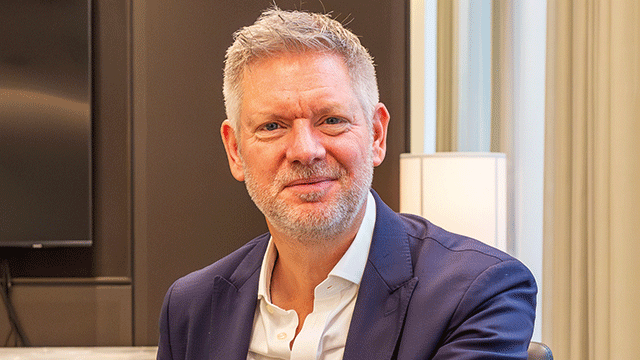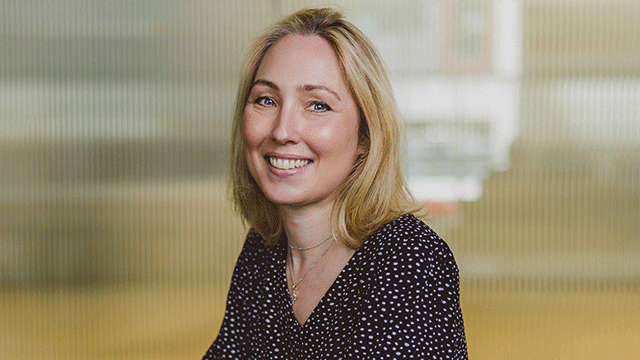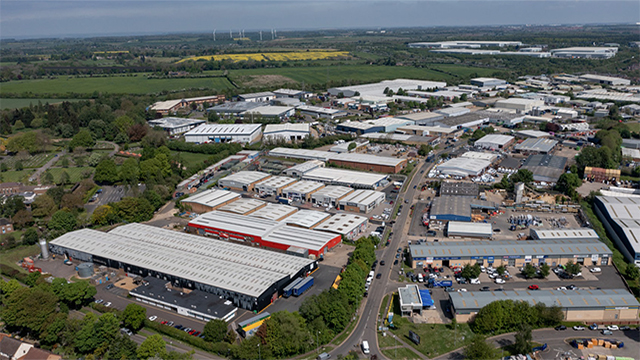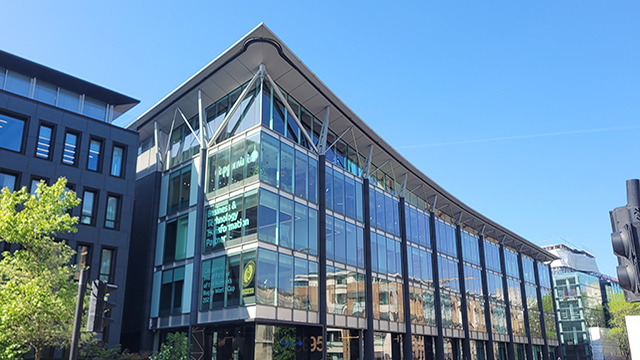Real estate will help the UK rise again
LISTEN: Real estate remains uniquely positioned to address the UK’s long-term structural changes.
In a world that’s been turned on its head in the past few weeks, it’s hard to stay focused on the long term.
But the UK remains woefully short of the number of homes it needs. Built environment activity needs to sustain a £100bn annual contribution to the UK economy. And this health crisis, despite some tragic consequences, will pass. And when it does, real estate needs to return to support more than 2m jobs, to thrive and to confront the long-term structural changes it is uniquely positioned to address, from sustainability to social value.
LISTEN: Real estate remains uniquely positioned to address the UK’s long-term structural changes.
In a world that’s been turned on its head in the past few weeks, it’s hard to stay focused on the long term.
But the UK remains woefully short of the number of homes it needs. Built environment activity needs to sustain a £100bn annual contribution to the UK economy. And this health crisis, despite some tragic consequences, will pass. And when it does, real estate needs to return to support more than 2m jobs, to thrive and to confront the long-term structural changes it is uniquely positioned to address, from sustainability to social value.
“There will be a short-term economic shock,” says Mat Oakley, head of European commercial research at Savills, of the Covid-19 emergency. “But it will be a V-shape. It’ll be sharply down and then sharply up.”
Like everyone quoted in this article, Oakley was speaking on an EG podcast before the crisis worsened (listen to the full discussion above). But that separation of short-term impact and long-term outlook is necessary, even if it can seem hard to lift one’s head.
“I try and take two positives from where we are at the moment,” says Shoosmiths partner Kellie Hatton. “First, this crisis is certainly a temporary one, which is very different to the financial crash in 2008. There were no underlying structural problems with the economy. This is very much a natural disaster.”
Huge challenges
The scale of the government’s planned support for business lays bare the likely economic consequences. There will be unprecedented challenges for UK plc to overcome. But it will do so.
And when it does, is there a better real estate growth story in Europe than the UK? “The UK has missed out on growth in the last two or three years,” says Oakley. “The biggest challenge now is going to be one of units. There just isn’t a lot of stock to buy out there, unless you want to buy a big, partially vacant mall.”
And, ironically, what will help businesses deal with this crisis is their experience over the last two or three years. “This is causing people to really think hard about their own supply chain and not be complacent,” says Bill Hughes, head of real assets at Legal & General Investment Management.
“Organisations that thought hard about the impact of a hard Brexit will have been thinking about how they source locally, how they ensure that they’ve got some sort of resilience in their supply chain. So, slightly bizarrely, some of the preparations for Brexit here are really relevant.”
Joe Sarling, head of research and analysis at Homes England, agrees. “The preparations for the UK exit from the EU now come into play and come into force. I think that’s really, really helpful.
“And the long-run fundamentals are still strong. Between now and 2041, there’ll be an extra 4m households. This requires really big decisions that go well beyond the next few weeks or months.
“The government has a clear ambition to build 300,000 homes a year and, after a record year so far, we’ve built 250,000. That’s an incredible achievement, yet still 50,000 short. So we need to push on, and pushing on becomes incrementally more and more difficult. We need to be a little bit bolder on this.”
[With coronavirus] there were no underlying structural problems with the economy. This is very much a natural disaster
Kellie Hatton, Shoosmiths
Delivering in the short term will require global capital to play a role. “UK residential, as it evolves into a multi-family asset, is pretty much the top of every global institutional investor’s shopping list at the moment,” says Oakley. “It offers the long income. They’re not bothered about the comparatively low yields. It’s a known global asset class.”
Investing with purpose
But equally important is real estate’s need to address the truly long term.
“The momentum around purposeful investment is very visible and here to stay,” says Hughes, “and those investors are going to be the winners. I think we’re in the process of creating examples of those winning investments, which will in time move the dissenters into action in a way that can also be constructive.”
Hatton believes that positive momentum was building before Covid-19 hit. “There has definitely been a big shift,” she says. “We saw BlackRock making a pretty significant announcement about the types of investments they were no longer going to make. They were going to move away from fossil fuel and put the climate at the heart of their strategy.
“So these movements from the investors, I think that is going to be the next shift, because if people are not going to get investment – if they don’t demonstrate the right values and results in terms of ESG – then that’s where it is going to start hitting the bottom line.”
Proving it will be a different matter. “The big challenge for us in the next few years is that a lot of this stuff is quite hard to measure,” says Hatton. “There are some key standards around sustainability that everyone’s very familiar with – BREEAM is on every heads of terms you see.
“But then you go into social impact. That’s even harder to measure. So I think the challenge for the industry is to come together and agree on what the standards are. And I think that will need some direction from government as well, to say how you are going to be measured as a company in terms of ESG.
“The industry can galvanise around that and start to develop and innovate the tools that we will need to then demonstrate these capabilities and values in our investments and our development.”
We just need to get through the next few weeks and months first.
Click here to listen to the other sessions that EG recreated in the studio during the postponed MIPIM week.
The panel
Mat Oakley, head of European commercial research, Savills
Kellie Hatton, partner, Shoosmiths
Bill Hughes, head of real assets, L&G Investment Management
Joe Sarling, head of research and analysis, Homes England
Chair: Damian Wild, editor in chief, EG
In partnership with
Photo: Andy Rain/EPA/Shutterstock










